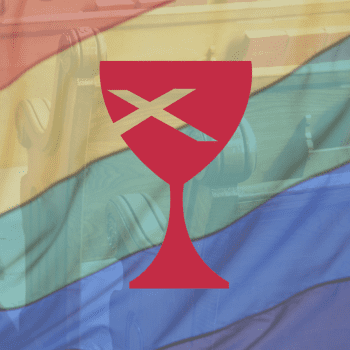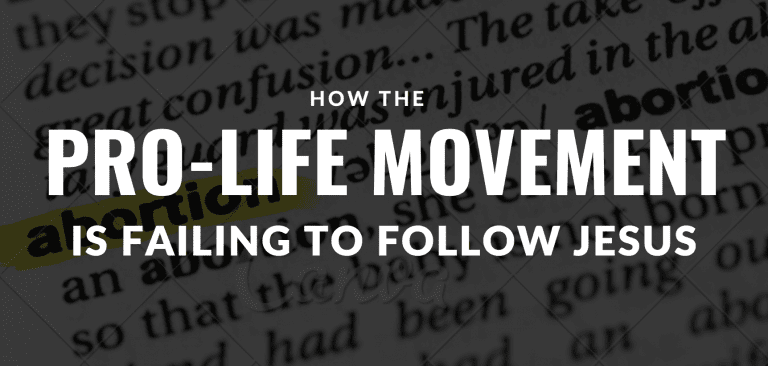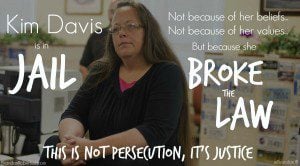Post By: Clark Hardy, Contributor
Something I deeply appreciate and love about my wife is the depth of conversations we often have. Each of us has an interest in people and the  aspects of their experiences that result in who they are. Rachel’s degree is a specialized sociology degree, and mine religion and theology. Human persons intrigue, inspire, and motivate us.
aspects of their experiences that result in who they are. Rachel’s degree is a specialized sociology degree, and mine religion and theology. Human persons intrigue, inspire, and motivate us.
The other night we were discussing how as people, we often get stuck in rut of surviving rather than thriving. Each mundane day compounds into the series of equally indistinguishable days that follows. We move mindlessly from our homes, to our various responsibilities. We can feel caught in a kaleidoscope of dull shades of grey—being able to barely distinguish different shapes, yet each easily blurs with the others and leave the senses unengaged.
It is my firm belief that God desires us to not just survive life, but to thrive in this life. How sentimental, right? Perhaps. Undoubtedly life is blemished with events and seasons that shadow our being with heaviness. I don’t mean to diminish this reality—I certainly do not see the world with a naive optimism. My wife often accuses me of being pessimistic—her the ever optimist.
In spite of the shadows cast by life at times, I believe Jesus desires for us to truly thrive—to live full lives. He said as much in John 10:10 “I have come that you may have life and have it in abundance.” While some may interpret this as relating to the “life to come,” I truly believe that the good news of Jesus has major implications for life here and now.
What did Jesus mean that his coming to earth was so that we might have life in abundance? It’s a multifaceted reality. His life defined by sacrificial love was what was necessary to over throw the grip and power evil had on the world. One act of violence typically spawns further acts, which repeat in endless cycles. We see this in our own families, and even on an international scale between waring countries. Radically, instead of retaliation, Jesus’ response to the evils done toward him was endurance—“turn the other cheek”. Evil becomes powerless in the reality of this type of sacrificial love, especially when endured so others don’t have to suffer. Jesus’ life of suffering broke the cycle of evil. The kingdom of darkness was overthrown.
The implications of what Jesus accomplished continue to be actualized throughout subsequent history. This happens as his followers continue to live in harmony with his ethic of self-sacrifical love. The result is that the powers of darkness continue to lose power, and the kingdom of God continues to unfold.
To thrive in this life can look like many things, but it starts in realizing that Jesus desires for us to live into the reality of his kingdom of peace and wholeness. Through him, everything is being made right (Colossians 1:20). We partner with Jesus in bringing his kingdom to earth when we fight for what is right for all people.
When we create unconditionally inclusive community, we acknowledge God’s image in every person. When we do not retaliate when we are wronged, the kingdom gains ground, and peace reigns all the more. When we love our enemies sacrificially, evil is vanquished. When we refuse to let our circumstances determine our future, but allow Jesus to redefine the trajectory of our lives, we walk into the fullness of life he has opened up to us.
As this happens, we are empowered to move from victim to victor; we maximize opportunities as they arise; use failures as opportunities to try something new; see the world not as a place to be feared, but enjoyed. Our perspectives take on a hopeful optimism, though life happenings would dictate otherwise. Jesus through his death and resurrection demonstrated his ability to bring life where there is only death. We too, through relationship with him can experience new life where we thought death was the final answer.
A major aspect of God’s kingdom is the restoration of relationship. It beings as we are awakened and restored to relationship with God. We also can begin to experience restoration of relationships with the people in our lives.
Made in the relational image of God, ultimately humanity is moving towards the making right of all relationships. We have strained relationships with family, old friends, our planet, and God. This is because of the grip of evil in our lives collectively—essentially sin is that which estranges us from relationship with God and others.
So when Jesus sums up that the most important thing in life is to pursue loving relationship with God and other people, he unlocks to us the key to living life to the fullest. We as people are happiest, healthiest, and ultimately thrive when we find ourselves in a matrix of reciprocal loving relationships. This does not mean that we are only beneficiary recipients of love. Rather we are first loved (1 John 4:19), and therefore enabled (and therefore motivated) to love others unconditionally.
If every person were to adopt this radical other-focused life of unconditional inclusive love, imagine how our communities would be redefined. Abuse, anger, hurt, pain, war, injustice—these things would fade. Unexpectedly, as we begin to give our love (and selves) away, we feel most satisfied.
So live life up. Work hard, play hard, learn, travel, have fun, meet people different from you, experience new things, serve, all the while inviting others to join you. In every interaction, don’t seek only what is best for you, but what lends itself to others thriving too. You may find that this decision is in fact what leaves you feeling most satisfied and invigorated. It is this type of living that is the abundant life.
recently graduated from Moody Bible Institute in Chicago, IL where he majored in pastoral ministry and theology. He is pursuing work focused on helping families and individuals, and strengthening communities. He strives to help people realize holistic well-being, seeing all aspects of a person as inseparably interconnected. With that, he desires to help people thrive in this life, and experience what Jesus called “life to the full.” Clark currently lives in Edmonton, Canada his beautiful wife Rachel.















